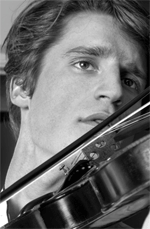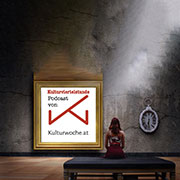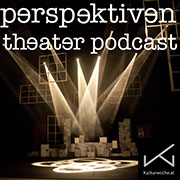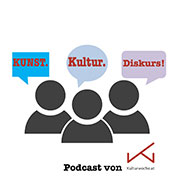 Die Konzertreihe "Rising Star" führt den belgischen Violinisten Lorenzo Gatto gemeinsam mit Eliane Reyes (Piano) durch ganz Europa, und wird so hoffentlich in nicht allzu langer Zeit auch außerhalb seines Heimatlandes größere Berühmtheit erlangen. Hannah Lietz traf den Musiker in einem Café in Brüssel und sprach mit ihm über seine Karriere, seine Einstellung zur Musik und sein Leben abseits des Rampenlichts.
Die Konzertreihe "Rising Star" führt den belgischen Violinisten Lorenzo Gatto gemeinsam mit Eliane Reyes (Piano) durch ganz Europa, und wird so hoffentlich in nicht allzu langer Zeit auch außerhalb seines Heimatlandes größere Berühmtheit erlangen. Hannah Lietz traf den Musiker in einem Café in Brüssel und sprach mit ihm über seine Karriere, seine Einstellung zur Musik und sein Leben abseits des Rampenlichts.
|
Lorenzo Gatto (geboren 1986 in Brüssel) begann im Alter von 5 Jahren Violine zu spielen. Nach seinem 12. Geburtstag besuchte er das Conservatoire royal de Bruxelles, wo er später als 17-Jähriger mit höchster Auszeichnung abschloss. Ebenfalls startete er bereits mit 12 Jahren weltweit in verschiedenen renommierten Konzerthäusern und auf berühmten Festivals zusammen mit weltbekannten Orchester zu spielen, wie zum Beispiel dem BBC Philharmonic Orchestra und dem Orchestre National de Belgique. Nach seinem Abschluss setzte er seine musikalische Ausbildung unter anderem an der Kunstuniversität Graz und am Konservatorium Wien unter Boris Kuschnir fort. In jungen Jahren gewann er bereits zahlreiche Preise, der prestigeträchtigste war mit Sicherheit der zweite Platz im Rahmen des Concours Reine Elisabeth in Belgien im Jahr 2009. Kulturwoche.at: Lorenzo, you have been travelling already a lot despite that you are still quite young. You have also been living in some different cities. How do you feel about all this changes and movements in your life? Lorenzo Gatto: (laughing) Okay, if you say I'm young... Concerning the travelling, I have always been enjoying visiting different countries and cities. Well, and at a certain point, I started to travel also for concerts. But I like it, I mean it's nice if you have a good base in your country, which is my case here, so I like to travel. So you feel you are at home when you come back to Belgium? Yes, of course. I grew up here, my family is here, also most of my friends. I fell this is my base, absolutely. You have also been living for a certain time in Vienna. What's the first thing you do when you arrive there? What is something quite special for you? It depends in which season, you know. But I mean, if I am there in the summer, I would go in a 'Heuriger', spend some time there finding the Viennese 'Gemütlichkeit' which is quite important (laughing). If it's in the winter, I would go for a 'Punsch' or something (laughing again), well I don't know, most probably it would be something like that. And maybe I would also ski; I would go to the Schneeberg. You know it? It's nice, because you have to go up by yourself. That's what I like. But there are so many things to do there. Close to the city I mean, you have the mountains, the lakes... that's really nice. Again concerning this kind of diversity of countries but now with a focus on your music: do you feel in general or during a concert a difference in the understanding, the reception and the respect which the audience is giving you for your playing in different countries or cultures? Yes of course, every country has a different way of appreciating what you do and also another education. It's true, for example playing in Vienna is quite stressful, because the people are very educated, they are used to have a very high standard of concerts. The Musikverein for example was one of the biggest and most reputed centers for music, so it's like all the legendary musicians played there. When you get there, you are a bit stressed, because you know, the people have very high expectations. But I also like to play sometimes in very small places, in provincial places, because then the people are very excited to listen to you. So really, you always feel a difference and as a musician, you are very sensitive to how the people react and you can feel their reaction, if they are appreciating or not and if they listen. And also every country has typical things. Like in Holland, they just make standing-ovations, you end playing and they all stand up. So you think you played great, but actually they do this automatically (laughs). I mean, when you played good, they do it, but not like amazing. If you get this in Vienna, then it's very good. Also in Germany they are very educated, everybody knows classical music, if you go to France, nobody knows, even here in Belgium. Sometimes here, it is a bit depressive, you have the impression, people are getting uninterested by classical music. It's like a museum, which is a pity, this music has to be alive. It's very rare, that there are young people. Sometimes it is a bit scary when you see in the audience only white hair. During an earlier interview you said, that you are a kind of 'slave of the instrument'. What does that mean for you? Actually, when there is a day when I don't play, I feel guilty, that's what I mean when I say I'm a slave (laughing). No, but it doesn't happen very often that I don't play during one day. It's just a kind of way of saying that I'm a slave, but it's somehow also a positive thing, because it means that I have something that is an engine in my life. In fact, to be a slave of a beautiful thing is actually nice. Maybe it's better to be a slave of something at least than to have anything at all, I don't know, that's what I think. What about the routine that may starts at a certain moment as you play the violin already for a long time? There is always routine, but in everything in life that brings you happiness, that brings satisfaction there has to be some kind of a fastidious side to it, you can't get the real satisfaction out of things, if you always take the easy way and I think, the fact that you always have to work in the toning of the sound and this kind of things, you really dig inside the instrument and the music and that is what gives sense to what I do actually. If it was so easy, it wouldn't be so interesting. Of course, sometimes it is boring to practice very often or to do skills in the morning, but it's ok, it brings also some serenity, but sometimes I just want to smash the violin against the wall (laughing). No, I didn't do it yet. And when you are playing for an audience or also for yourself, you prefer to play solo or not? Well, actually the violin-repertoire is very limited for solo-violin. You have some wonderful pieces like Bach, Paganini, or Caprice, but these are more for exercising, the biggest repertoire is with piano, with orchestra or chamber music. Basically I like to do everything, but playing alone isn't always so simple. If it is for the audience, it depends very much on the acoustic and the atmosphere, because playing solo-violin can be very austere, so it's not easy for the audience. For example playing together with piano, and that's what I love also in music, it's a dialogue that you make with your instruments, it's communication, you listen and respond. So it is always nice to meet and play with people, it is always instructive, it's an exchange. But playing alone is also amazing; you just need good conditions. Apart from you, your talent and your violin, of course you need to present yourself to the public. How important, liked and to which extend necessary is marketing for you, especially in our world of media, fast communication, facebook and twitter... For me, I don't particularly like it. I don't like to be fake, to make a fake smile. But in a way, we live in a modern world, you need the media, the communication and what I want is to play on stages and to have an audience for me. And to obtain this, of course I need to be representative, to be present in the media. You have to accept the fact, that you are also a commercial object in some ways, which is artistically not what I want to hear for myself, but I would say that I just play the game. It is not what I like or what I'm doing it for, but I play the game, because it is a way of reaching people. But this is totally opposite to what we are doing when we are making music. When I'm recording a CD for example, like the last CD which is not something commercial at all, it is very strange, because you have to make a promotion for it and say 'Yeah, that's very good music, it’s very cool!', and then the repertoire is very austere, not easy and kind of heavy, kind of modern music, and you know, the people won't really understand it. So you have to find the balance... Yes, there is always a balance. You know, I could also be a real freak, just play my violin and don't want to see anybody, but that is also stupid. Yes, you just have to find a good balance. One event that contributed to your popularity was the, for you very successful, Concurs de Reine Elisabeth in 2009. What do you think in general about this kind of contests? For me, making music doesn't have to do anything with concurrence, it isn't compatible with contests and competition. Yes, yes, in the ideal world there wouldn't be any contest like that for music, it doesn't have much to do with it. But you know, there are many good musicians, the world is big now and one thing you need for studying the violin is the motivation. So this contest in 2009 was very positive for me. You had to prepare a lot pieces, so it made me working a lot which was very good. It also helped me to build up some characters, some strength in the personality, which is also important, because when you have to play on stages everywhere in the world you have to be quite strong in your head and not afraid. Somehow I think that it is a good school to make competitions. But it depends on the personality, it can be also very bad for someone very sensitive, it can be a disaster. So, I think it's a matter of personal experience and of personal judgment to know, if it is good for you to make these competitions. I think for me it was necessary, because I was always a very kind person, very polite, very well educated and somehow, at a competition, you get a nerve, you compete with people from everywhere - from Russia for example. You know, they have this character, they don't care about anything, they are maybe sometimes able to break your violin (laughing). No, I'm kidding, I'm exaggerating; don't write that (laughing again). But it's true, I needed this. Like with my Russian teacher, who is very strict but his competition was very good, because I needed to be under pressure a lot. In my personality I'm quite relaxed and I need pressure to work, so it helped me a lot. I need some concerts to keep me playing, it's giving me nerves, it's giving me motivation and that's a good thing. To change now the topic a little bit: Which other things beside the music you like to do? What are your other passions? Sports, Literature... Yes, exactly, both (laughs). I like sports, I do more and more now again. It is important, because it gives me a better mind and I feel more comfortable on the stage. I love being in the air and flying, this is really my great passion. I have my pilot license for very light aircrafts, and I do paragliding. And by the way, I had my first course without an engine in Austria at the Hohe Wand. And I like to read, when I have the time to. I try to read more now, but it's difficult to find this time. What is your favourite author or kind of literature? I don't have a favourite author actually, it's like with favourite composers, I don't have one, so don't ask me that. I just go from an author to the other. When you discover someone, you try to understand everything and you are very profound. In fact, I like everything; I read the Russian literature - Bulgakov, Dostojevsky - the German, like Thomas Mann, who wrote amazing things about music, and I also like Proust for example. The fact is that I want to express myself with the right words and I'm not able to do it, so for me reading is the way not to feel this emptiness. Well, music is also a way to express you, but you still need words. Music is good for the things where you can't put words, but you still need to put words on some other things. Literature is, I think, the completion of that and I think, as musician it is very important to understand what literature is about. That brings me to the next question: Do you also compose your own songs, or are you planning to do it? Yes, actually I try, it came very recently. I would like to compose, I'm now in touch with a lot of composers and it's fascinating, but I'm not able to do it yet. I fell that I still need some time to listen to a lot of things and to learn some things, but it will come, I mean, it's in my mind. It's like a seed in my mind, so I'm waiting for it to grow (smiling). But it's very difficult to compose, because so many things have been written before and you need some good knowledge of the literature, the musical literature and the musical grammar, which is not so easy, it's actually quite difficult. But I think, we all, the musicians, would like to do this, because interpretation is already a kind of creation, but it's mostly like a 'handcraft'. So you are the interpreter of music which is already written. But isn't there also a comparison between the original on the paper and your personal version? Does there anyway exist an original version of a composition? Well, there is no original, there is only the music. It is only a paper, something black on white. But this is very interesting, because some people think we all play the same when we play a composition, but it is always a totally different piece. The composer just writes something like, as I said, black on white, but it's nothing. Of course, there is already everything in there, but it's the musician who makes it alive. So interpretation is, I want to say, a way of creation, because from the paper you make something alive. That's interesting for me, because I thought, that when a composer writes the music, it already contains the melody, there is already the music, and it is due to the musician to play it 'right' in a way. Well, for me the composer had some ideas in his head and tried to describe them, but it's you to make it to music. It's like a coded language and you have to decode it with your own emotions or sentiments. It's a coded language of emotions, but then you need your own to decode it. Das Interview führte Hannah Lietz Anfang 2011; Foto: © José-Noel Doumont (Studio Montjoie)
|
||












